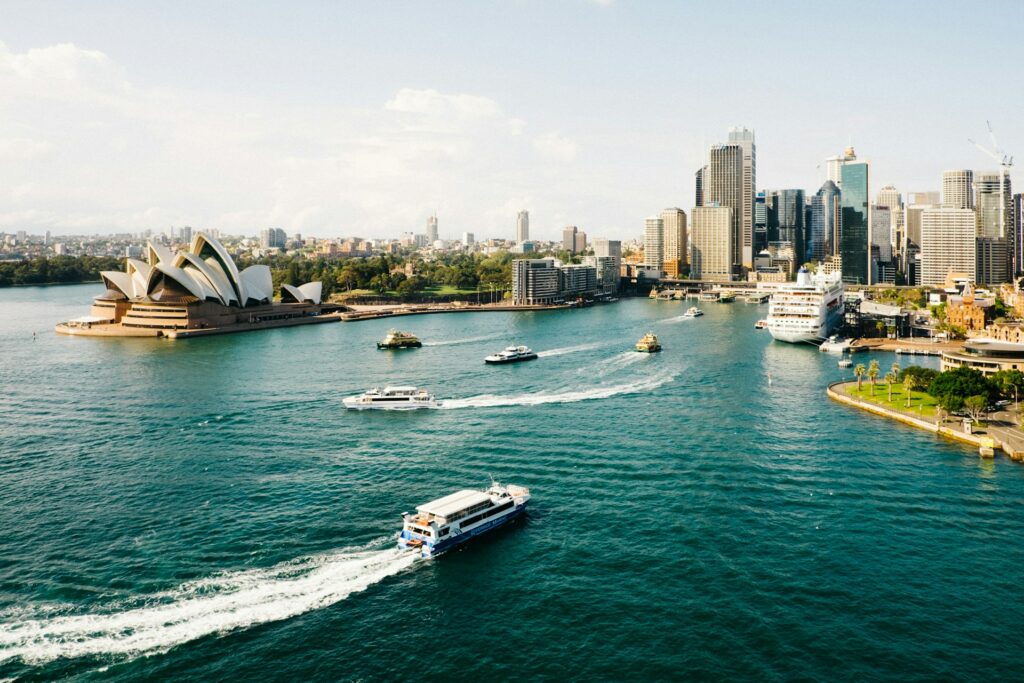Australia is an incredibly popular country for those looking to travel and work. With multiple working visa options available, many different people, no matter their background, can live and work in the country.

Types of Visas
There are three main types of working visas available. There are subclasses that will be discussed later, but more often than not, you will be applying for one of these visas.
Short-Stay Work Visa
A short-stay visa allows eligible travelers to live and work in the UK on a temporary basis, for up to a year. More often than not, people on these visas will work temporary jobs, such as in hospitality or agriculture. If this one is for you, remember to visit Quit Clinics to get your vape prescription for your travels.
Temporary Work Visa
A temporary work visa is far more complex than a short-stay visa and typically involves having a specific skillset or being endorsed and sponsored by a company. You can also usually bring your family to live in Australia on one of these visas.
This route also allows you to apply for permanent residency after a specified amount of time has elapsed.
Permanent Work Visa
A permanent work visa is one that allows you to live and work in Australia without being on a temporary visa at any point. There are far more qualifications needed for this visa type, and it is typically reserved for those who have been nominated by their company to work in Australia because their skills are needed there.
Sub-Class Visas
There are also sub-class visas that you can apply for either during or after you have been approved for one of the visas above.
Work & Holiday Visa
A work and holiday visa is similar to a working holiday visa, but it allows applicants to stay for up to 3 years, as opposed to only the one year you would get on a short-stay work visa. However, there are extra requirements.
Unlike the short-stay visa, where you don’t need any skills or education, the work and holiday visa requires you to have a certain education level, depending on where you are from and which industry you will be working in.
Employer Nomination Scheme Visa
This type of visa is exactly what it sounds like. Applicants must not only be nominated by their employer, but they must also have a certain set of skills that is applicable to the industry they will be working in while in Australia.
Temporary Skill Shortage Visa
Another self-explanatory visa, the temporary skill shortage visa, is a visa that allows an applicant to work in Australia for up to four years, if nominated by an Australian employer. You will also need to be educated and skilled in a specific industry.
Finally, to be approved for this visa, you need to have skills in an industry that is suffering from a shortage of said skills. This is typically a more difficult visa to get, as many Australian companies would first exhaust the pool of residents they interview before looking overseas.
Skilled Independent Visa
A skilled independent visa does not require a nomination or endorsement by a company, but it requires you to prove the skills you have in the industry you work in. You will also need to be invited by the Australian government to apply for this visa.
Get inspired:
- 7 Things to Do in Byron Bay, the Hippie Paradise in Australia
- Places to Visit in New Zealand: Awesome Tips From a Local
- Digital Nomad Visa: Countries that offer Remote Work Visas
- Things To Do in Melbourne: Tips For All Ages and Tastes
Age Requirements
Regarding age, some visas are only applicable to those between the ages of 18 and 30, with the majority of visas only being available to those under the age of 45 or 50, depending on where you are from. Some exceptions can be made, for example, when applying for a temporary skill shortage visa.
Cost
Depending on the type of visa you are applying for, the cost can range from AUD$315 to over AUD$4000. However, your company or future Australian employer can sometimes cover the cost of the more expensive visas.
Processing Times
Like most visas, processing times will differ depending on the type of visa, the volume of applicants, the additional paperwork required, etc. Some of the more simple visas, such as temporary working visas, can be processed in as little as a couple of weeks.
Family
Most permanent visas will allow you to travel with family members, but family is also strictly defined. The majority of the time, “family” means a spouse, partner, children, or grandchildren. Visas often don’t extend to parents, cousins, siblings, etc. It is also important to note that the cost of the visa can drastically increase depending on how many family members you plan to bring with you.
Permanent Residency
Finally, permanent residency is possible for many of the visas you can apply for. It will depend on if you followed the rules of the visa you were on, reapplied on time, have employment, etc.
As you can see, there are many options for those looking to live and work in Australia and potentially move to the country in the future. While many of them have strict rules and regulations, it can be a life-changing process when done correctly.



